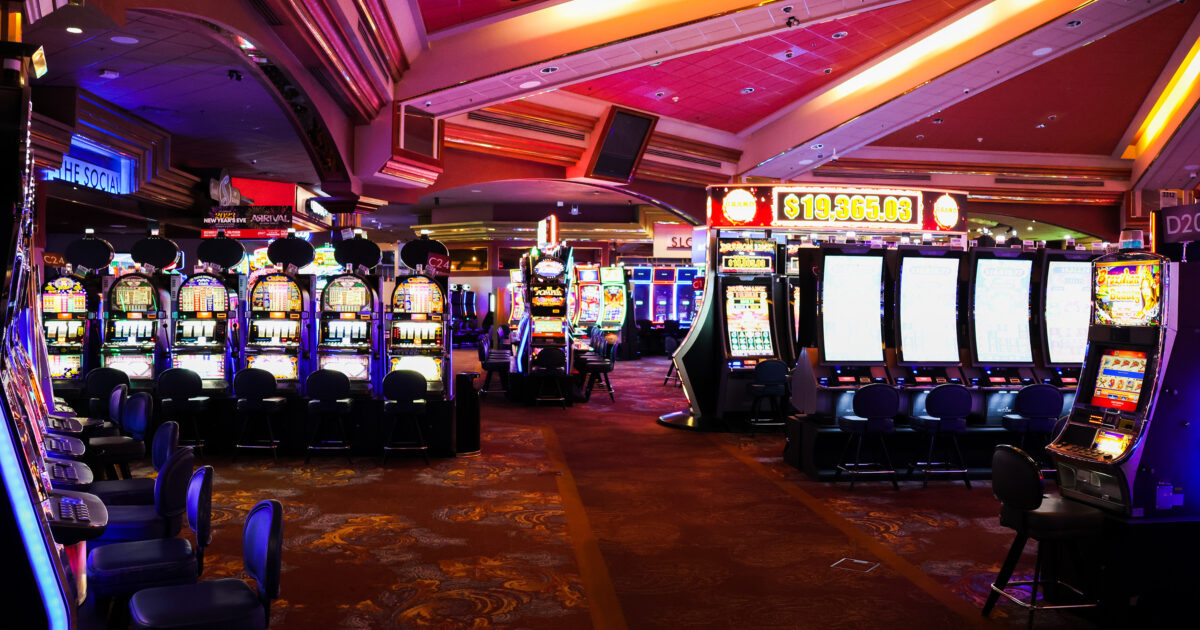
Casino games have long been a engaging entertainment option, drawing numerous of players from diverse cultures around the globe. From the glitzy casinos of Las Vegas to the bustling gambling halls of the Cotai Strip, these games serve as a link that brings together people across different backgrounds. The allure of chance, skill, and gambling entices not only those hoping to gamble for profit but also those seeking a sense of community.
The cultural impact of casino games extends far beyond the gaming floor. They often embody the social norms and principles of the societies in which they thrive. Games such as poker, 21, and the wheel game have embedded themselves into the mosaic of popular culture, influencing multiple fields from cinema to style. As we explore this intriguing intersection of luck and life, we can better understand how casino games shape and are influenced by the environment surrounding us.
Historical Evolution of Gambling Games
The roots of gambling games can be tracked back to historical civilizations, where gambling in various forms was widely engaged in. In China, around 2300 BC, a type of gambling known as Keno was well-known, while in historic Rome, soldiers would often bet on the results of their matches. The idea of using luck for fun and profit evolved over the years, leading to the establishment of more organized games. By the end of the Middle Ages, betting houses initiated to surface in the continent, particularly in the Italian peninsula, which brought forth early versions of famous games still enjoyed today.
As betting increased fame in Europe, the 17th and 18th centuries saw the appearance of gaming houses as exclusive locations for gaming. The first official gambling house, the Ridotto, was set up in Venice in 1638, featuring activities like the game of Baccarat and Faro games. This time marked a crucial turning point, as gaming venues started to welcome not just the high society but also the expanding middle-income class. The sophistication of activities evolved, leading to the creation of new guidelines and modifications that improved the experience of players.
In the 19th century, the industrial revolution and shifts in societal norms further transformed the environment of gaming activities. The arrival of the game of roulette and contemporary slot machines drew a larger clientele, and gambling establishments became seen as legitimate forms of entertainment. This period witnessed the globalization of gambling, as casinos extended from European nations to the Western Hemisphere, culminating in the creation of the famous Strip of Las Vegas in the 20th century. The progress of gaming activities has progressed into the current era, integrating new technologies and online platforms, allowing them open to a global population.
# Cultural Relevance across Different Cultures
Casino activities have deep-rooted social value in many cultures throughout the globe. In Las Vegas, the very core of the urban landscape is woven around casinos, where gaming is not just a pastime but a key aspect of entertainment and community life. The vivid lights and vibrant atmosphere attract millions, showcasing how gambling activities can shape local financial landscapes and cultural identities. This setting transforms the notion of relaxation into an engaging encounter that influences apparel, sound, and even cinema.
Conversely, some societies approach wagering with more caution, viewing it through the lens of ethical considerations and heritage. A case in point, in various Eastern communities, games like Mahjongg and Pai Gow Poker are steeped in history and have significant social meanings. These games are often played during get-togethers and occasions, fostering collective connections and strengthening familial ties. The act of engaging in these games goes past mere leisure, reflecting principles such as deference to seniors and the significance of communal fun.
At the same time, in European countries such as Monte Carlo and Rome, games of chance serve as symbols of wealth and refinement. The elegant atmosphere of these venues attracts both travelers and native inhabitants, reinforcing a sense of distinction and elitism. non GamStop casinos The art of the game of poker and the strategic features of games like the game of baccarat are celebrated, molding interpersonal interactions and creating an appeal that fascinates a diverse audience. This highlights how games of chance can both reflect and shape societal views towards hazard, benefit, and social interaction.
Financial Influence and Tourism
Casino games play a crucial role in the economic landscape of many areas, particularly those that depend significantly on visitor traffic. The revenue produced from gambling establishments fuels local financial systems, creating employment opportunities not only within the casinos but also but also in related sectors such as hotel management, restaurant services, and recreation. This influx of tourists, drawn by the attraction of games and the overall gaming environment, stimulates spending across multiple local enterprises, contributing to the economic health of the region.
The presence of casinos often leads to the development of facilities, including hotels, transportation systems, and leisure amenities. These developments are essential in enhancing the overall visitor satisfaction, making locations more attractive to tourists. Additionally, many casinos invest in local communities through support of events and philanthropic initiatives, further embedding themselves into the social fabric of the region. Such investment not only supports economic growth but also fosters a positive reputation of the casino industry.
Furthermore, the worldwide appeal of casino games drives tourism competition, with regions vying to attract gamblers from across the globe. Iconic locations like Las Vegas and Macau have become synonymous with casino culture, drawing millions annually. This competitive edge encourages innovation and diversification within the gaming industry, influencing developments in entertainment and accommodation that extend beyond their limits. The ripple effects of this tourism extend wide, impacting local financial health and cultural exchanges on a global scale.
